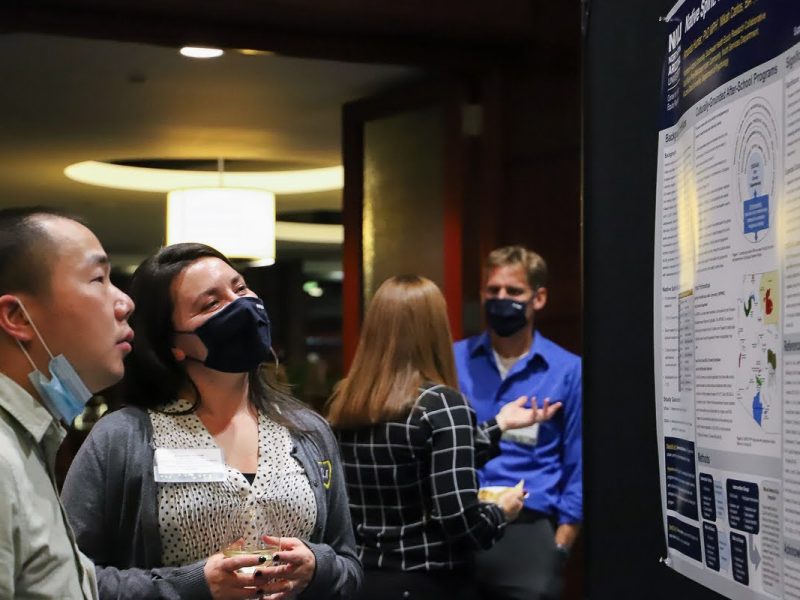Unlocking Health Equity: Another successful round of pilot projects completed in 2023!
The Pilot Project Program (PPP), a Southwest Health Equity Research Collaborative (SHERC) supported program, funds projects from areas across Northern Arizona University (NAU) that show a meaningful relationship to health equity. The PPP promotes the development of early-stage investigators and underrepresented faculty by providing support and mentorship across campus. PPP investigators across four colleges and 11 academic units have received over $18M in grant funding, including 13 National Institutes of Health (NIH) awards totaling more than $11M so far. Research carried out through the PPP is not just about collecting data – it’s about making a tangible difference in the lives of individuals and communities.
Four pilot projects concluded in May of this year and are on their way to improving health equity in Arizona and beyond.
Completed projects from 2023
Developing a methodology for exploring health inequities tied to wildfire smoke
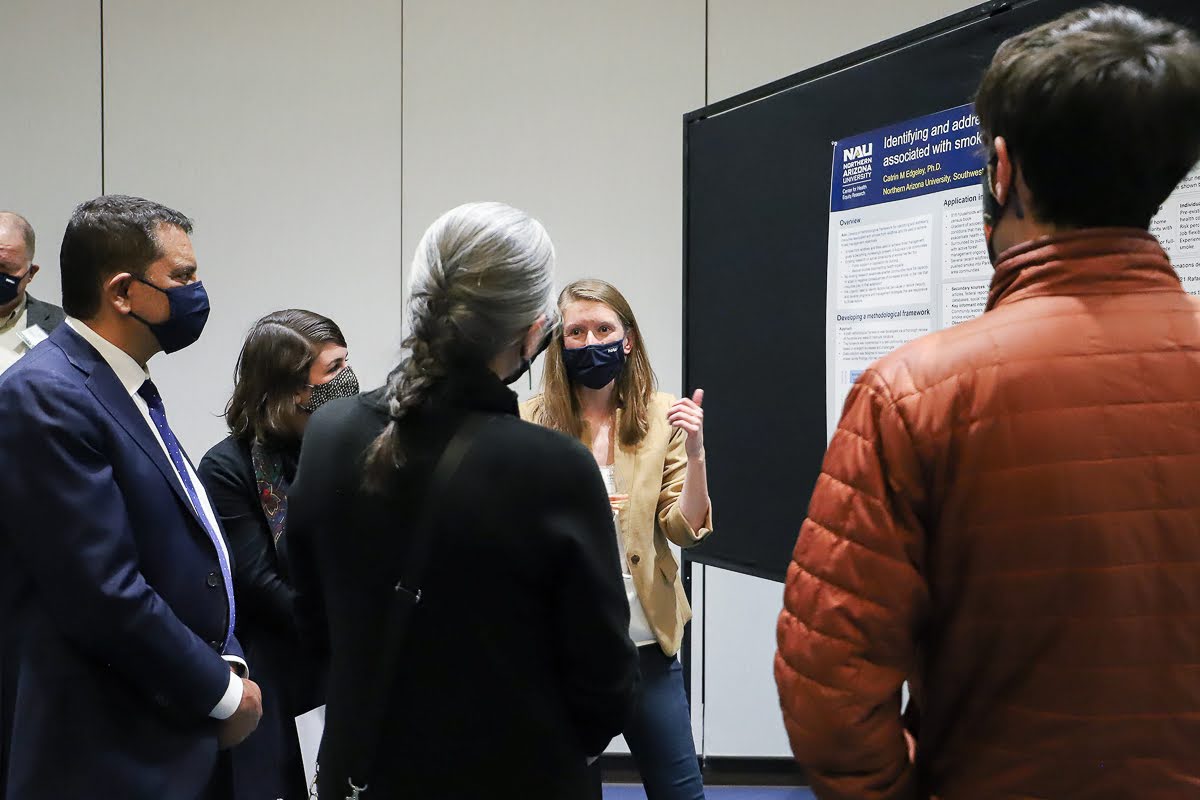
Catrin Edgeley, a natural resource sociologist and assistant professor in the School of Forestry, received PPP funding to develop a methodology for exploring health inequities tied to wildfire smoke. Wildfires in the western United States are growing fiercer and more frequent as climate change continues to change our natural landscapes. “SHERC’s support of this study allowed me to act on this key research need and elevate examination and discussion of health disparities and environmental justice narratives into my work,” Edgeley said. Edgeley utilized three phases of research to investigate how wildfire smoke affects communities here in Arizona. For this study, she:
- conducted a community survey to gain insight into how residents believe various factors affect health equity;
- engaged in interviews with both residents and experts to uncover the strategies households are currently using to mitigate health issues linked to smoke exposure;
- organized focus group discussions involving both residents and experts to pinpoint practical and community-endorsed approaches for enhancing the community’s ability to adapt to and reduce health disparities when air quality is poor
The results obtained through these approaches served as the foundation for evaluating the health disparities within the community that were either caused by or worsened by wildfire incidents.
“I have developed a greater understanding and appreciation of how communities are experiencing air quality impacts associated with wildfire and had the opportunity to communicate local needs to federal land management agencies and scientists engaged with these populations towards the end of this project,” Edgeley said.
For additional information on this project, visit Edgeley’s project.
Opioid use recovery help in an online user environment (OUR HOUSE)
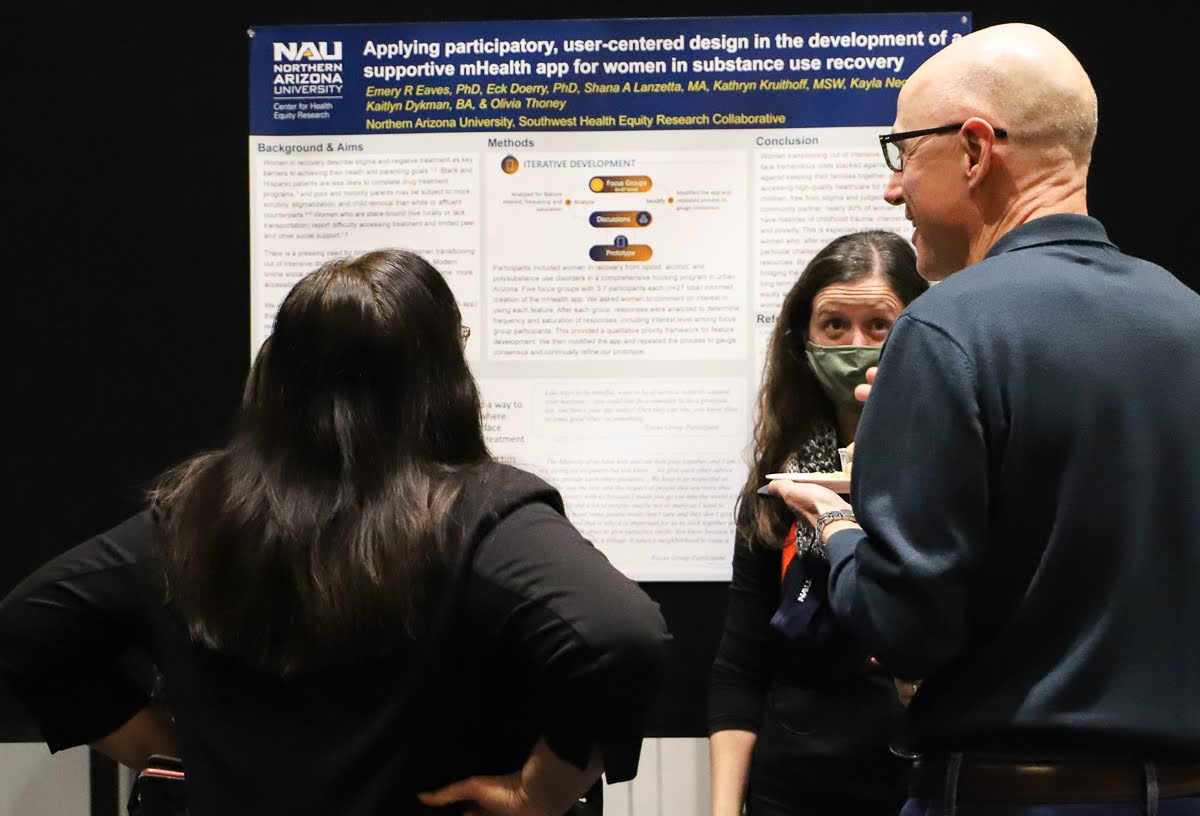
Emery Eaves, associate professor and chair of Anthropology, alongside Eck Doerry, professor of Informatics, Computing, and Cyber Systems, received PPP funding to build an app-based information-sharing platform that bridges support gaps for mothers transitioning out of intensive residential treatment. “There is a pressing need for bridge support for women transitioning out of intensive drug and alcohol treatment programs,” Eaves recognized. “Modern online social network technologies provide less burdensome, more accessible alternatives to in-person services.”
During their research in the development of the app, Eaves and Doerry
- conducted focus groups and interviews with mothers who have transitioned out of treatment;
- considered specific behavioral and contextual elements to tailor user experience;
- refined and pretested the mHealth (mobile health) app for feasibility and usability using real people.
Eaves said, “Our mHealth app facilitates access to social support and resources while reducing exposure to stigma for mothers and families during transition from comprehensive recovery programs into community environments.”
For additional information about this project, visit Eaves’ project.
Native Spirit: Development of a culturally grounded after-school program to promote well-being among American Indian adolescents
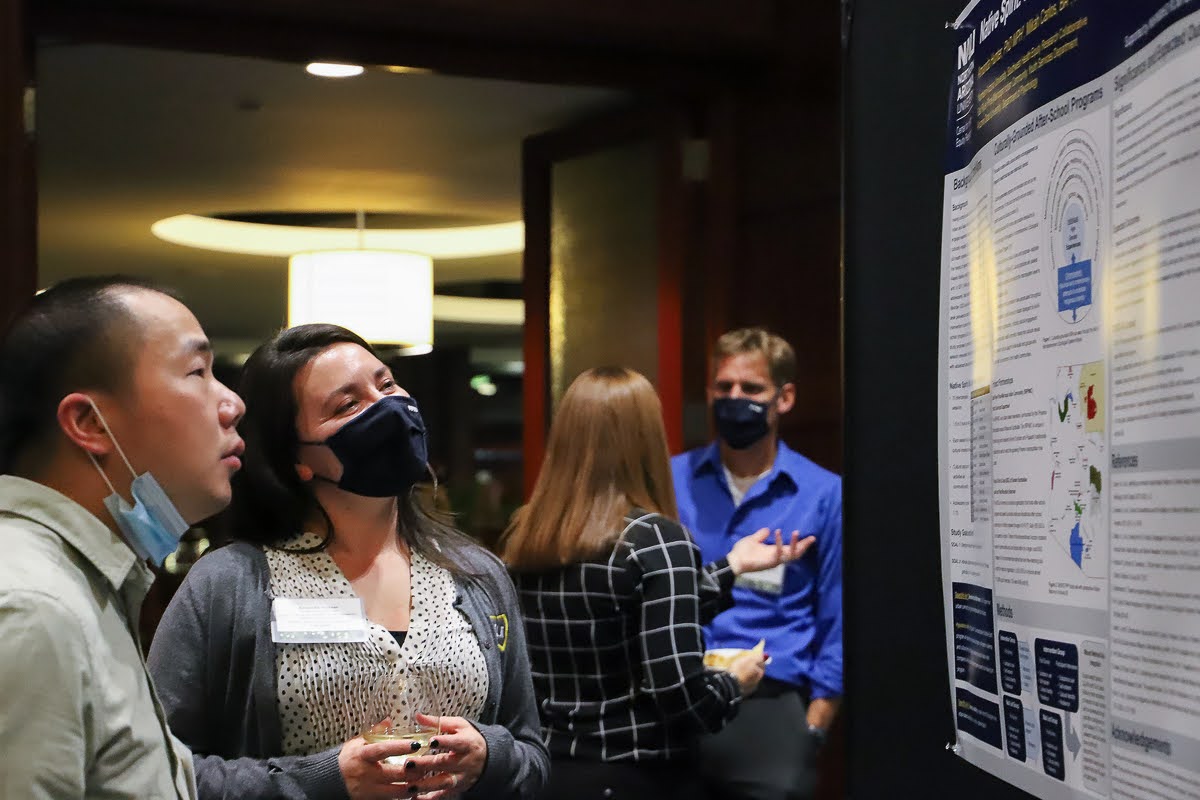
Amanda Hunter, postdoctoral scholar in CHER, received PPP funding to investigate the effects of implementing a culturally grounded after school program (ASP) called Native Spirit. Native Spirit was developed by an academic-community partnership to incorporate cultural elements that foster positive youth development, and Hunter studied the outcomes of the program with American Indian and Alaska Native (AIAN) youth.
In Hunter’s study, she mentions that indigenous history is becoming less prevalent in public school curricula, and this erasure of culture has a negative effect on self-esteem, resilience, and cultural identity. By increasing access to cultural identity through ASPs, AIAN youth are given the opportunity to connect with their culture and remove themselves from opportunities to use harmful substances.
Although Hunter’s study was truncated due to COVID-19, she mentioned that there were many positives that came from her pilot project. “NAU mentors helped me troubleshoot various challenges that inevitably occur for all research studies, and they taught me that it’s always okay to ask for help. Receiving research funding to conduct pilot research has helped propel my career as an early-stage investigator and has connected me with lifelong mentors.”
For additional information about this project, visit Hunter’s project.
Parents taking action to improve autism services for Navajo families in northern Arizona: Intervention adaption and pilot trial
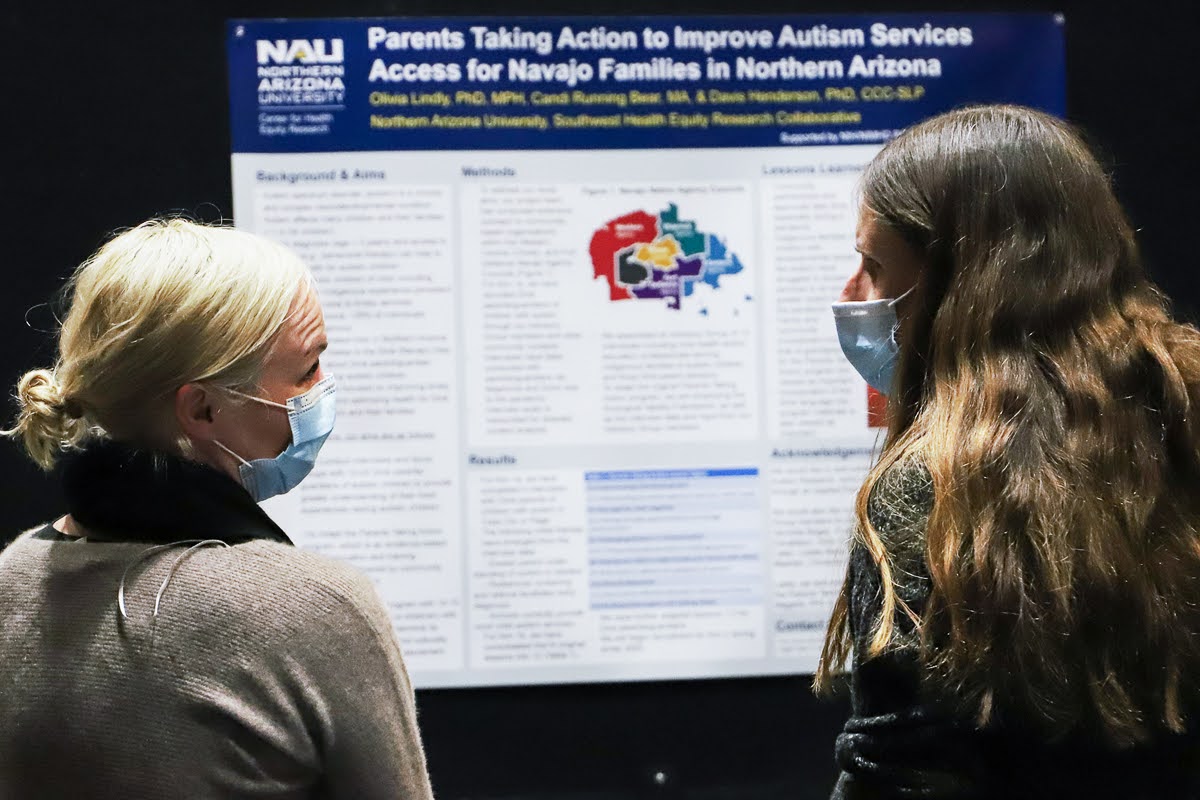
Olivia Lindly, assistant professor of Health Sciences, received PPP funding to help advance health equity for Diné families of children with autism by adapting an existing telehealth program for Diné parents with an autistic child. After consulting with her 13member community advisory board to adapt these materials, they were implemented by community health workers who identify as Diné parents/guardians of autistic children. The pilot trial associated with this project is ongoing.
This mixed-method study conducted focus groups with Diné parents to better understand the needs of this community. After her research, Lindly, with the help of experts, adapted Parents Taking Action, an evidence-based intervention, and tailored it to her research findings. A pilot trial set to conclude this fall will test the program with 10 Diné parents/guardians of autistic children ages two to 12 years, with additional funding supplied by the Organization for Autism Research.
For additional information about this project, visit Lindly’s project.
Can my project get funded?
Seed funding from the PPP has brought life to over 23 pilot projects from NAU researchers in the last seven years, and it hopes to do the same in Year 8. A new cycle for the PPP begins in the fall semester 2023. We encourage all early-stage investigators to learn more about the Pilot Project Program.
SHERC is a National Institutes of Health (NIH) funded cooperative agreement with the Center for Health Equity Research at Northern Arizona University. SHERC is supported by funding from the National Institute on Minority Health and Health Disparities of the NIH (U54MD012388).
